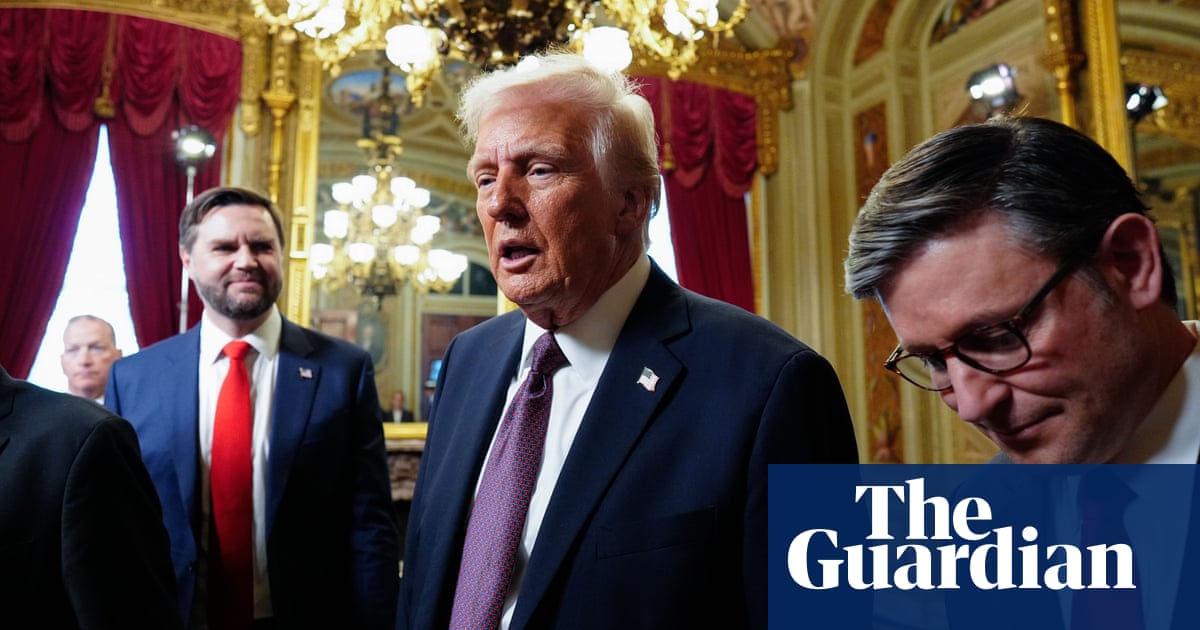Donald Trump offered a bombastic and contradictory vision for US foreign policy at his inauguration on Monday, declaring that he would be a “peacemaker and unifier” even as he repeated his vow to “take back” the Panama canal.
In his speech, Trump said that the Panama canal, which was built by the US in the early 1900s but ultimately given to Panama in 1977 under a treaty that guaranteed its neutrality, was a “foolish gift that should never have been made”.
“We gave it to Panama and we’re taking it back,” he said.
The Panama canal was built over a series of decades in the late 1800s and early 1900s and carried a devastating human toll due to accidents and diseases such as malaria.
“The United States – I mean, think of this – spent more money than ever spent on a project before and lost 38,000 lives in the building of the Panama canal,” Trump said at the Capitol.
A French attempt to build the canal cost the lives of at least 20,000 workers, most of them from Caribbean islands such as Antigua, Barbados and Jamaica. At least 5,600 workers died during the US era of building the canal from 1904-14, the vast majority of whom were not Americans.
A treaty signed by Jimmy Carter in 1977 transferred the canal to Panama in 1999 and allowed any nation to use the canal. The US launched a military invasion of Panama in 1989 that left as many as 1,000 people dead as the US overthrew president Manuel Noriega – a one-time US ally who was later targeted for his role as an international drug kingpin.
In his remarks, Trump said that US ships, including from the US navy, were being overcharged, and alleged without evidence that China was dominating the canal.
“Panama’s promise to us has been broken,” he said. “The purpose of our deal and the spirit of our treaty has been totally violated.”
The remarks prompted an angry response from Panamanian president, José Raúl Mulino. “The canal is and will remain Panama’s, and its administration will continue to be under Panamanian control with respect to its permanent neutrality,” he said in a statement.
“The canal was not a concession from anyone,” he continued. “It was the result of generational struggles that culminated in 1999, as a result of the Torrijos-Carter treaty and, since then, for 25 years, we have managed and expanded it with responsibility to serve the world and its trade, including the United States.”
Trump had previously said he would not rule out military action to retake territory in Panama or in Greenland, which Trump has said the US would need to take control from Denmark in order to ensure its national security.
after newsletter promotion
In the wide-ranging speech, Trump promised that he would root out diversity efforts in the military, help the US achieve expansionist policies of “manifest destiny”, and planned to rename the Gulf of Mexico the Gulf of America.
“I’m pleased to say that as of yesterday, one day before I assumed office, the hostages in the Middle East are coming back home to their families,” he said to applause from his supporters. “I thank you. America will reclaim its rightful place as the greatest, most powerful, most respected nation on Earth, inspiring the awe and admiration of the entire world.”
Invoking the 19th-century US expansionist policies of “manifest destiny”, he said that America would once again feel like a “growing nation” and bring the nation’s flag “into new and beautiful horizons”.
Looking to the cosmos, he also said that the US would send astronauts to Mars to exuberant cheers from billionaire supporter Elon Musk, who was seated alongside other top dollar donors on the dais at the US Capitol building.
Trump gave no details about how he planned to achieve the US’s “manifest destiny into the stars”.
“My legacy will be as a peacemaker and unifier,” Trump said. “That’s what I want to be – a peacemaker and a unifier.”
Trump has largely staked that claim on his vows to end Russia’s war in Ukraine by negotiating a peace treaty between the two countries. In remarks that appeared to allude to that conflict, he said: “We will measure our success not only by the battles we win, but also by the wars that we end, and perhaps most importantly, the wars we never get into.”
Yet during the speech, he offered no substantive discussion of the war in Ukraine, nor of other major foreign policy issues such as the US relationship with Europe and the Nato military alliance.
“This was the ‘Monroe Doctrine and Mars’ inaugural address, appealing for expansion and colonisation in the western hemisphere – plus space – but saying next to nothing about America’s military role in Europe, the Middle East and even Asia,” wrote Stephen Wertheim, a senior fellow in the American Statecraft Program at the Carnegie Endowment for International Peace.
Read more of the Guardian’s Trump coverage









